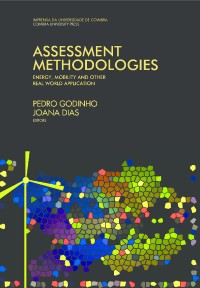Please use this identifier to cite or link to this item:
https://hdl.handle.net/10316.2/38154| DC Field | Value | Language |
|---|---|---|
| dc.contributor.author | Filipe, Sandrina | |
| dc.contributor.author | Godinho, Pedro | |
| dc.contributor.author | Dias, Joana | |
| dc.date.accessioned | 2015-11-27T16:27:59Z | |
| dc.date.accessioned | 2020-09-10T16:37:16Z | - |
| dc.date.available | 2015-11-27T16:27:59Z | |
| dc.date.available | 2020-09-10T16:37:16Z | - |
| dc.date.issued | 2015 | - |
| dc.identifier.isbn | 978-989-26-1038-2 | |
| dc.identifier.isbn | 978-989-26-1039-9 (PDF) | |
| dc.identifier.uri | https://hdl.handle.net/10316.2/38154 | - |
| dc.description.abstract | In this paper we analyse the impact of a crisis in the economic evaluation of a road infrastructure. We consider the Douro Interior sub-concession, awarded by the Portuguese government to a private consortium in 2008, and concluded in 2012. The government decision was based on economic analysis made on 2008, which concluded that the economic benefits of the infrastructure would be larger than its economic costs. Today there are some doubts whether it was really worthwhile to build the infrastructure, but any analysis based on the current situation must take into account that Portugal underwent a severe crisis with significant impact on its macro-economic indicators. The exercise we undertake consists of analysing what would be changed in the 2008 analysis if it would have been possible to foresee the macro-economic changes in the Portuguese situation. In order to perform this analysis, we use the economic evaluations published in 2008 and we update the macro-economic data according to the information available at the beginning of 2015. The resulting evaluation highlights the components of the analysis that would have been altered if the crisis and other macro-economic changes had been foreseen. We conclude that the changes in the Portuguese macro-economic situation would be enough to justify the alteration of the recommendation produced by the economic evaluations. This highlights the importance of using methodologies that allow the incorporation of risk in the assessment of such projects, as well as the explicit incorporation of the postponement option in the analysis. Additionally, it shows that some caution is necessary when performing ex-post analysis of economic studies: unforeseen changes in the macro-economic situation may be enough to alter the recommendation provided by such studies. | eng |
| dc.language.iso | eng | - |
| dc.publisher | Imprensa da Universidade de Coimbra | por |
| dc.relation.ispartof | http://hdl.handle.net/10316.2/38126 | por |
| dc.rights | open access | - |
| dc.subject | Cost-Benefit Analysis | eng |
| dc.subject | Highways and roads | eng |
| dc.subject | Economic factors | eng |
| dc.title | The impact of a crisis in a cost-benefit analysis: What has changed in the Douro Interior sub-concession economic evaluation? | por |
| dc.type | bookPart | por |
| uc.publication.firstPage | 171 | - |
| uc.publication.lastPage | 189 | - |
| uc.publication.location | Coimbra | por |
| dc.identifier.doi | 10.14195/978-989-26-1039-9_8 | - |
| uc.publication.digCollection | PB | por |
| uc.publication.orderno | 8 | - |
| uc.publication.area | Ciências Sociais | por |
| uc.publication.bookTitle | Assessment methodologies: energy, mobility and other real world application | - |
| uc.publication.manifest | https://dl.uc.pt/json/iiif/10316.2/38154/213155/manifest?manifest=/json/iiif/10316.2/38154/213155/manifest | - |
| uc.publication.thumbnail | https://dl.uc.pt/retrieve/11200111 | - |
| uc.publication.parentItemId | 54536 | - |
| uc.itemId | 70671 | - |
| item.grantfulltext | open | - |
| item.fulltext | With Fulltext | - |
| Appears in Collections: | Assessment methodologies: energy, mobility and other real world application | |
Files in This Item:
| File | Description | Size | Format | |
|---|---|---|---|---|
| the_impact_of_a_crisis_in_a_cost-benefit_analysis.pdf | 922.71 kB | Adobe PDF |  |
Items in DSpace are protected by copyright, with all rights reserved, unless otherwise indicated.
